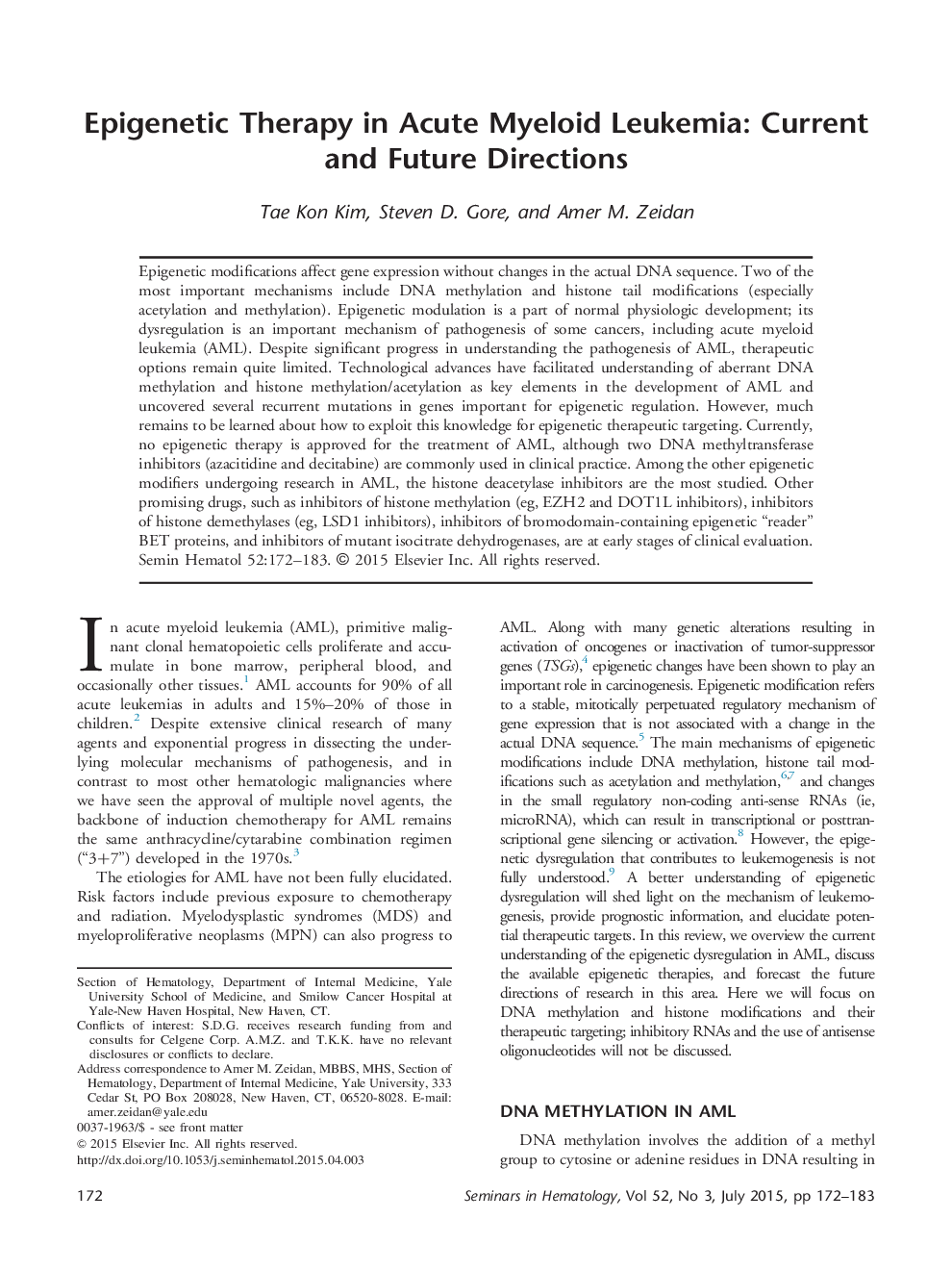| کد مقاله | کد نشریه | سال انتشار | مقاله انگلیسی | نسخه تمام متن |
|---|---|---|---|---|
| 3333454 | 1213316 | 2015 | 12 صفحه PDF | دانلود رایگان |
Epigenetic modifications affect gene expression without changes in the actual DNA sequence. Two of the most important mechanisms include DNA methylation and histone tail modifications (especially acetylation and methylation). Epigenetic modulation is a part of normal physiologic development; its dysregulation is an important mechanism of pathogenesis of some cancers, including acute myeloid leukemia (AML). Despite significant progress in understanding the pathogenesis of AML, therapeutic options remain quite limited. Technological advances have facilitated understanding of aberrant DNA methylation and histone methylation/acetylation as key elements in the development of AML and uncovered several recurrent mutations in genes important for epigenetic regulation. However, much remains to be learned about how to exploit this knowledge for epigenetic therapeutic targeting. Currently, no epigenetic therapy is approved for the treatment of AML, although two DNA methyltransferase inhibitors (azacitidine and decitabine) are commonly used in clinical practice. Among the other epigenetic modifiers undergoing research in AML, the histone deacetylase inhibitors are the most studied. Other promising drugs, such as inhibitors of histone methylation (eg, EZH2 and DOT1L inhibitors), inhibitors of histone demethylases (eg, LSD1 inhibitors), inhibitors of bromodomain-containing epigenetic “reader” BET proteins, and inhibitors of mutant isocitrate dehydrogenases, are at early stages of clinical evaluation.
Journal: Seminars in Hematology - Volume 52, Issue 3, July 2015, Pages 172–183
